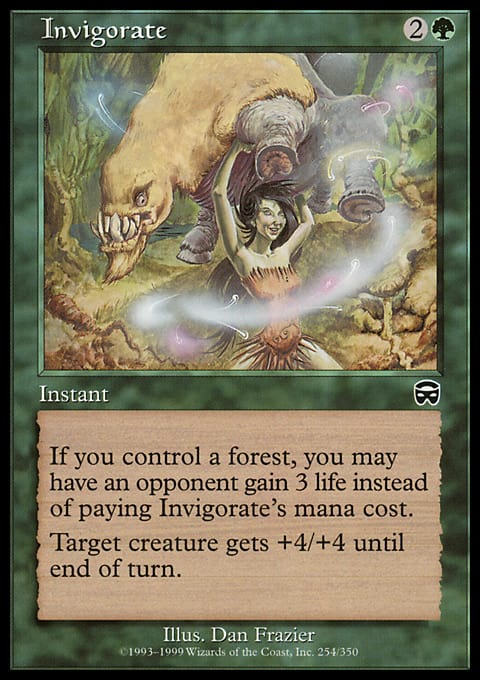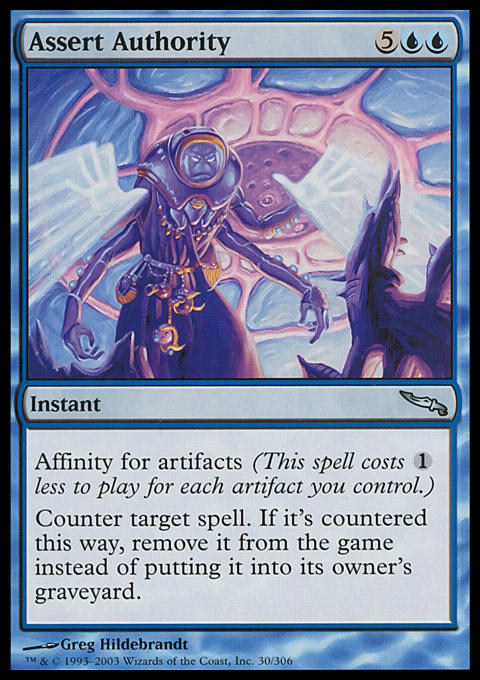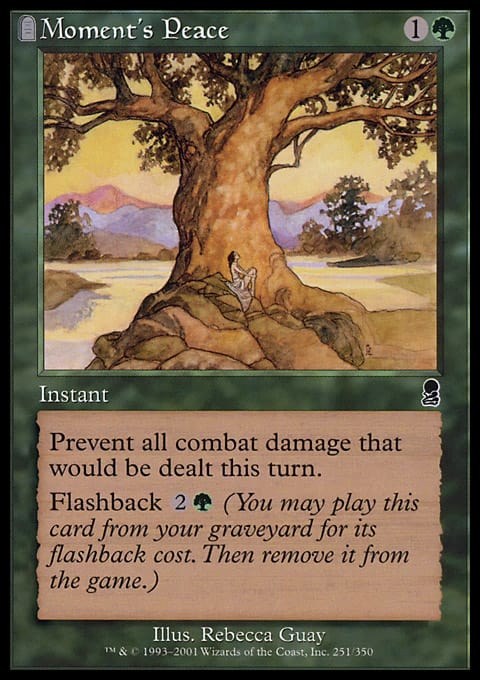Last month, I wrote about how Magic promotes a sense of community. While this seemed to resonate with many people, others wrote in to remind me that not everybody is focused on the interpersonal aspect. For many people, solitary enjoyment of just the game is their main motivation.
This is important to keep in mind, as I feel that the diversity of interests among the players is part of what makes the game so strong. I continued to think about it as I began reading research for my dissertation, looking at people’s motivations for gaming. One article stood out for me in particular, ignoring external factors in favor of looking at gaming for the sake of gaming.
To explain this, the article used a theory of motivation called Self-Determination Theory (Ryan, Rigby & Przybylski 347). The authors found that enjoyment of a video game was associated with experiencing certain feelings, suggesting that this may provide a look into the idea of “fun”—an understanding of why we will gladly invest ourselves in an activity with no identifiable purpose.
At the same time, Self-Determination Theory has long been used to explore motivation in a variety of settings other than video games (Przybylski, Rigby & Ryan 155). This made it simple not only to apply to the theory to Magic, but to see how the appealing traits of Magic have been reflected in a variety of situations in which I've been most motivated.
According to these researchers, pushing ourselves to grow and explore is our natural state (Ryan & Deci 56). Magic supports this in a number of ways, starting with the fact that—
We Like Feeling Challenged
The first feeling that supports our growth is feeling as though we're able to exercise our abilities (Ryan & Deci 58). Compare the intensity of a very close game to one in which your opponent is stuck at two lands for six turns. We are looking for what researchers call optimal challenge (Ryan & Deci 58).
Magic provides a fertile environment for expanding our abilities, no matter our skill level. I have played Magic with people who had difficulty with the basics of combat or casting spells—but they still found working at it to be a satisfying challenge. From a very young age, we naturally gravitate to activities that are one step beyond our current level of development (Danner & Lonky 1044).
On the other end of the spectrum, I am constantly reminded of the power of the game when I hear about developers—by definition, some of the most accomplished and immersed players—playing afterhours. The complexity of the game and constant change mean there is always new information to process.
Like Magic, any environment offering optimal challenges contributes to motivation (Ryan & Deci 58). When I was in an autism clinic, I always enjoyed working with the kids who acted out the most. It became a personal challenge—could I be exciting enough that he would find the lesson more fun than pulling my hair? Could I set up the next activity before she had time to throw herself on the floor? The work was simultaneously exhausting and rewarding.
However, there is an important second part to competence. At the clinic, I was encouraged even when I failed—sometimes, the kids did pull my hair or throw themselves on the floor. I learned that this was to be expected; I was a very new therapist, and this was challenging work. This support was key, as another part of motivation is—
We Like Feeling Capable
The second part of competence, as you might guess, is not feeling incompetent (Ryan & Deci 59). For a long time, I had a bit of a dirty Magic secret—I avoided playing in Competitive Limited events because I find it really difficult to fill out the decklists. Although I'm self-conscious about having trouble with this reasonably simple task, I was more embarrassed by the fact that I avoided it.
At Gen Con Indy, though, the topic of rage quitting came up. And to my surprise, nearly everybody I talked to could identify an aspect of Magic that they stayed away from whenever possible. One wouldn't do timed deck-building, another couldn't stand the Magic Online interface. And every single person had the same reason for avoiding our particular weaknesses: We hated feeling incompetent.
Now, some people seem to be extremely resilient in the face of negative outcomes. At least two people I talked to saw frustration as a sign that they needed to do their activities more so that they could master them. While admirable, this is not the norm—researchers described these people as having “abiding inner resources” that support their feelings of competence in nearly any situation (Ryan & Deci 58). The rest of us, including the majority of people I talked to about it, are most motivated when we are supported in feeling competent.
This sense of competence is something that Magic has historically struggled with. Mark Rosewater discussed this in his recent State of Design article, discussing the “barrier to entry” for new players. He points out that not only is Magic a complex game, but we as a community are (as he politely puts it) an “intimidating presence” (“State of Design”).
Competence isn’t just about whether we’re able to do something, but also about how we feel others perceive us. In one study, kids were less willing to try challenging puzzles and enjoyed the puzzles less when they were graded on their performance even though the grades didn’t have any actual significance (Harter 797).
Likewise, you would expect new Magic players to be less motivated when they feel like their lack of skill is being judged. Rosewater pointed out that Duels of the Planeswalkers removes this factor even as it guides the player, and it has been instrumental in reducing the barrier to entry (“State of Design”).
When players begin exploring deck-building, there is support in that area, too. Rosewater talked about modular versus linear designs—you can read the full article here, but the gist is that linear designs are clearly intended to work together, while modular designs are more open-ended (“Come Together”). Rosewater noted that linear mechanics offer guidance to a deck-builder, letting him or her know what to look for (“True Allies”). Both Duels of the Planeswalkers and linear mechanics seem to promote feelings of competence in new players.
You don't need all of these factors to feel competent, although each one contributes (Ryan & Deci 58). When I'm feeling uncertain in my work, I like a lot of structure—I want to be told what to do and how to do it so that I can feel sure I'm doing it right. Unsurprisingly, I was very fond of tribal and other linear mechanics in my early days of playing Magic.
As I become more confident—in my own ability and/or the goodwill of the people I'm with—I find that I am much more interested in taking risks and branching out. At that point, the structure can actually begin to feel a bit restrictive. Similarly, Rosewater notes that linear mechanics have a downside, in that players can feel as though “R&D is spoon-feeding us decks” (“Come Together”).
You see, competence isn't the only factor that motivates us. This is why a new challenge in Magic might excite us, while a similarly difficult challenge at work or school can just be aggravating. This is because—
We Like Being in Control
One of the strengths of Magic is its open-endedness. There's no right way to play Magic. In fact, you might even say this idea was made official with the introduction of the psychographics. For an activity to be motivating, it needs to provide feelings of both competence and autonomy—we need to feel that we're doing it of our own volition (Ryan & Deci 58).
With Magic, you're free to move about and explore whatever interests you. Love Commander but don't like deck-building? Buy a preconstructed deck. Tired of playing Standard? Try drafting for a while. Or playing Commander. Or don't play at all, and read about flavor instead.
In addition, one of the joys of Magic is that it's a game. It's optional. Unlike work or school (with a few exceptions), nobody is making us do it. According to research, we are stubborn creatures—pretty much any kind of external control makes us less motivated (Ryan & Deci 59).
However, there are exceptions to this. Although playing in a tournament is optional, once you’ve entered the tournament, you’re stuck playing whether you want to or not. Likewise, you may not feel like testing your deck even one more time, but you may do it anyway because you want to be at your best for the Pro Tour Qualifier. Once you’ve accepted that an activity is important to you, you become motivated even though you didn’t necessarily choose it for yourself (Ryan & Deci 62).
In short, we don't like busy work. We are most motivated when our activities are meaningful to us, whether that's because we chose them or because we've decided they're worthwhile (Ryan & Deci 63). In Magic, this is straightforward—something got you playing, and something keeps you playing. In the rest of our lives, it's not so clear. I've certainly struggled at times to find meaning in some tedious activity at work or in school, but being able to find a purpose to it has often provided a much-needed lift.
Conclusion
Researchers refer to intrinsic motivation as “a natural wellspring of learning and achievement” (Ryan & Deci 55). It's not something that can be forced, but only fostered. However, by playing Magic, we have essentially affirmed our desire to challenge ourselves. We've seen what we can do and how we can push ourselves when the conditions are right.
Since learning about Self-Determination Theory, I’ve tried to take a more active hand in making sure I have a good environment. When I’m feeling discouraged in any situation, I’ve found it helpful to stop and do a check: “Am I feeling challenged? Am I feeling capable? Am I feeling in control?” If the answer to any of these questions is “no,” I know what to focus on to try to get back on track.
I had adopted many of these strategies in the past, but the theory helps me to understand and organize them. If I’m not feeling challenged, I might go looking for extra responsibilities that are intriguing to me. If I’m not feeling capable, I might look for more structure or feedback on something I’m feeling uncertain about. If I’m feeling constrained, I might spend some time thinking about the rationale behind whatever it is I don’t feel like doing.
These are my strategies; your mileage may vary. Just as each of us plays Magic differently, each of us experiences the world differently. However, for many of us, playing Magic is an important part of who we are. Sometimes, it might even be one of the better parts. I think it's worth seeing what we can learn from it.
Works Cited
- Danner, Fred, and Edward Lonky. "A Cognitive-developmental Approach to the Effects of Rewards on Intrinsic Motivation." Child Development. 52. (1981): 1043-1052. Web. 21 Aug. 2012.
- Harter, Susan. "Pleasure Derived from Challenge and the Effects of Receiving Grades on Children's Difficulty Level Choices." Child Development. 49. (1978): 788-799. Web. 21 Aug. 2012.
- Przybylski, Andrew, C. Scott Rigby, and Richard Ryan. "A Motivational Model of Video Game Engagement."Review of General Psychology. 14.2 (2010): 154-166. Web. 27 Aug. 2012.
- Rosewater, Mark. "Come Together." Daily MTG: Magic: The Gathering. Wizards of the Coast LLC, 06 Oct. 2003. Web. 24 Aug. 2012.
- Rosewater, Mark. "State of Design 2012." Daily MTG: Magic: The Gathering. Wizards of the Coast LLC, 27 Aug. 2012. Web. 27 Aug. 2012.
- Rosewater, Mark. "True Allies." Daily MTG: Magic: The Gathering. Wizards of the Coast LLC, 02 Nov. 2009. Web. 27 Aug 2012.
- Ryan, Richard, and Edward Deci. "Intrinsic and Extrinsic Motivations: Classic Definitions and New Directions." Contemporary Educational Psychology. 25. (2000): 54-67. Web. 21 Aug. 2012.
- Ryan, Richard, C. Scott Rigby, and Andrew Przybylski. "The Motivational Pull of Video Games : A Self-Determination Theory Approach." Motivation and Emotion. 30. (2006): 347-363. Web. 21 Aug. 2012.





























